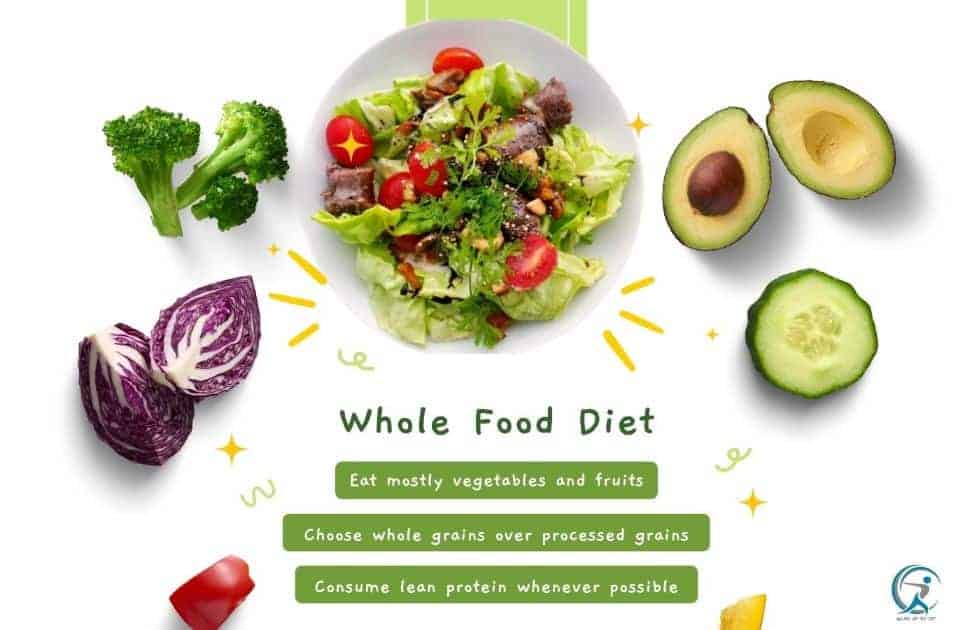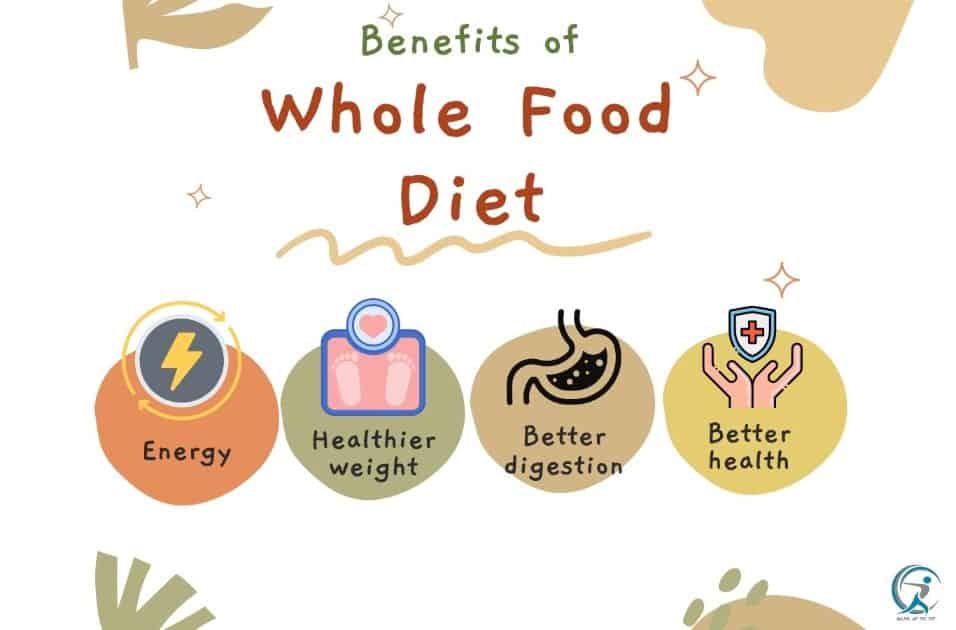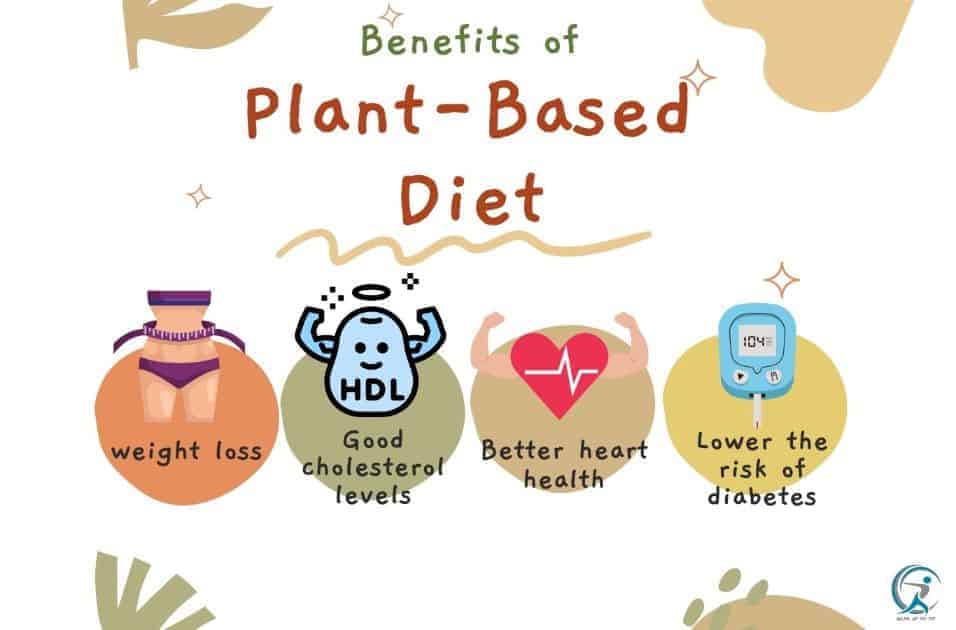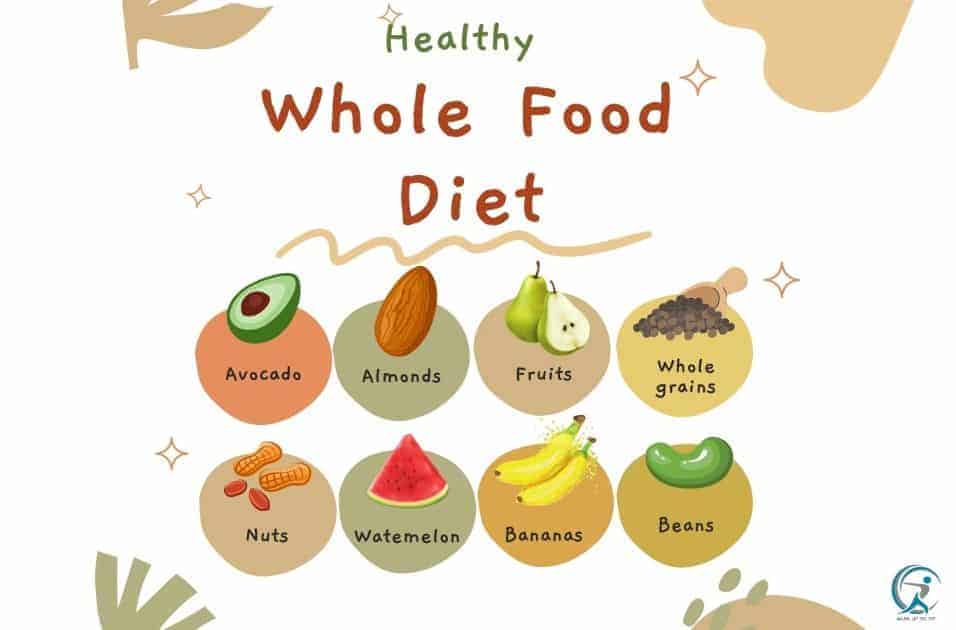When most people think about a balanced diet, they automatically think about a healthy diet with whole foods.

There is a great deal of confusion in today’s society around what constitutes a healthy diet. With so many options available, it can be difficult to know what is best for your body. One of the most important things that you can do for your overall health is to eat a balanced and healthful diet. A whole food diet is a great way to do this.
What is a Whole Food Diet?




A whole food diet is a diet that focuses on whole, unprocessed foods. These foods contain all of the essential nutrients and are typically lower in calories and fat than processed foods.
A whole food diet is a dietary pattern that includes only unprocessed foods. Examples of whole foods include raw fruits and vegetables; fresh meat, poultry, and fish; nuts and seeds; eggs; beans; herbs and spices; and healthy fats like olive oil. Whole grains, such as brown rice, quinoa, buckwheat groats, or barley are also considered to be whole foods.
A whole food diet excludes processed foods, refined sugars, artificial sweeteners, and additives from the diet. The rationale behind this is that processed foods have been stripped of their natural nutrients during processing, which leaves them devoid of their beneficial nutrients. Processed foods are generally high in salt, sugar, and saturated fats, which can cause weight gain and other health problems over time.
Whole grains are considered better than refined grains because they retain all their nutrients instead of losing them during refining processes or cooking methods used when preparing refined grains. Examples of refined grains include white flour products such as white bread, pasta, and rice where the outer layer has been removed during processing, leaving only the starchy center behind without its beneficial nutrients intact. Whole-grain versions retain many more phytochemicals such as lignans and fiber than refined versions do.
If you’re looking to start a diet plan, you may have heard of the Whole30 diet. It’s a 30-day challenge to stop eating unhealthy foods. It’s a restrictive plan that encourages mindful eating. Talk to your doctor before you try it to make sure it’s safe for you.”
“WebMD.”
What Are the Benefits of a Whole Food Diet?




Some benefits of eating a whole food diet are that it can help you lose weight, reduce your risk of heart disease, and decrease your risk of type 2 diabetes. Additionally, a whole food diet is generally considered to be a healthier diet because it is made up of foods that are high in fiber, vitamins, minerals, and antioxidants.
There are a lot of benefits to eating a whole food diet. Some of the benefits include:
- More energy and better moods because of the increased intake of vitamins, minerals, and antioxidants.
- Healthier weight because processed foods are high in sugar and unhealthy fats.
- Better digestion because processed foods are often inflammatory and contain artificial additives.
- Better overall health because whole food diets are linked with a decrease in chronic diseases.
“1. Less Risk of Heart Disease”
“2. Advance Addiction Recovery”
“3. Mood Improvement”
“4. Easily Eat a Balanced Diet”
“5. Stronger Bones
“6. Higher IQ”
“7. Look Better”
“8. Decrease Diabetes”
“9. Appear Younger”
“10. Save Money”
What is a Plant-Based Diet?
A plant-based diet is a diet that is made up of foods that are derived from plants. This means that you should focus on eating foods that are plant-based and not meat-based.
A plant-based diet is a diet that consists primarily of plant foods, such as fruits and vegetables, grains, legumes, and nuts. A plant-based diet may also include small amounts of animal products like eggs, fish, and poultry.
Plant-based diets are often naturally high in fiber, vitamins, minerals, and antioxidants — all nutrients essential for good health and weight management. Plant-based diets can help you maintain a healthy weight because they’re largely made up of nutrient-dense foods that are low in calories; they’re also naturally low in saturated fat, trans fat, and sodium.
The popularity of plant-based diets has grown in recent years because they offer so many benefits: they’re typically rich in fiber and low in sodium and saturated fat.
They usually:
- contain more vitamins and minerals than meat-centered diets;
- they may lower your risk of heart disease, type 2 diabetes, or certain types of cancer (especially colon cancer);
- they can help you lose weight or maintain a healthy weight if you’re overweight;
- they may help prevent or treat high blood pressure, and some evidence suggests that following a plant diet may improve symptoms of depression.
What Is The Difference Between A Plant-Based and A Whole Food Diet?
Plant-based diets are not the same as a whole food diet.
A plant-based diet is generally considered to be a healthier diet because it is made up of foods that are low in calories and saturated fat. A whole food diet, on the other hand, is generally considered to be a healthier diet because it is made up of foods that are high in fiber, vitamins, minerals, and antioxidants.
A plant-based diet is one that focuses on consuming only plant-based foods, such as vegetables and fruits. The diet avoids meat, eggs, dairy, and other animal products. There are several variations of this type of diet, some of which include eating only raw foods or avoiding all processed foods.
A whole food diet is one that focuses on consuming unprocessed foods from all four food groups: fruits, vegetables, grains, and protein sources such as beans, nuts, and seeds. Whole grains are recommended over refined grains because they contain more nutrients and fiber than refined grains do. A whole food diet also emphasizes healthy fats like olive oil over saturated fat found in red meat or butter.
Plant-based diets have become increasingly popular in recent years due to their potential health benefits when compared to meat-centric diets. Plant-based diets may help reduce cholesterol levels, lower blood pressure and improve insulin sensitivity. In addition, they may help reduce cancer risk by lowering levels of estrogen metabolites that promote breast cancer cell growth.
Whole food diets are also becoming more popular due to their potential health benefits when compared to other dietary habits such as low carbohydrate or high protein diets that are often recommended for people looking to lose weight. A whole food diet may help you maintain a healthy weight by providing you with the nutrients your body needs to function properly.
What Are Some Benefits Of Eating A Plant-Based Diet?




A plant-based diet is a way of eating that focuses on plants for food. Plants are the basis of the food pyramid, so you can be sure that you’re getting enough vitamins and minerals by eating a healthy plant-based diet.
Plant-based diets are also associated with a reduced risk of chronic diseases such as heart disease, cancer, and diabetes. Here are some of the benefits of eating a plant-based diet:
Weight loss. A plant-based diet is low in fat and high in fiber, which means it’s filling and helps you feel full longer. This can help control overeating and weight gain.
Good cholesterol levels. Eating more fruits, vegetables, and whole grains raises your good cholesterol levels while lowering your bad cholesterol levels—this is known as an “olive oil” effect because olive oil was shown to have these effects in studies conducted at Harvard University in 1992.
Lower risk of heart disease/stroke/type 2 diabetes/cancers/etc… Plant foods are naturally low in saturated fat, so they don’t raise bad cholesterol levels or increase your risk for heart disease or stroke-like animal products do. They also contain phytochemicals (plant chemicals) that may reduce your risk of cancer and other diseases such as type 2 diabetes.
Is It Easier To Follow A Whole Food Diet Than A Plant-Based Diet?




It is often easier to follow a plant-based diet than a whole food diet. This is because plant-based foods are easier to digest. However, there are many people who are able to follow a whole food diet successfully.
A whole food plant-based diet is a healthy way to eat. But it’s not the only way to eat. And for some people, it can be difficult to follow.
So is it easier to follow a whole food plant-based diet than a plant-based diet? The answer is yes and no.
Yes, because you’re not worrying about counting calories or limiting your intake of certain foods. You just need to make sure you have enough calories based on your activity level and gender, and then you can fill up on fruits and veggies with minimal added fats or sugars.
No, because it requires planning ahead to ensure that you have everything you need at home so that if you get hungry suddenly, there will be something readily available for you — especially if you live alone or don’t cook regularly for others in your household who might not share your diet choices (or vice versa).
Conclusion
Eating a balanced and healthful diet with whole foods is one of the best ways to improve your overall health. It can be challenging to make the switch to a whole food diet, but it is well worth it.
There are a lot of talks these days about the importance of a balanced and healthy diet. And with good reason – a diet that is not balanced or healthy can lead to a number of health problems. It is especially important to focus on eating whole foods when you are looking to improve your health.
Whole Food Diet Market Options
Alex is a fitness aficionado, empowers others towards healthier, active lives through small, sustainable changes for lasting results. Visit Gearuptofit.com for insightful tips and resources to enrich a balanced lifestyle.





![Whole Foods [Explicit]](https://m.media-amazon.com/images/I/519DYk5J12L.jpg)

